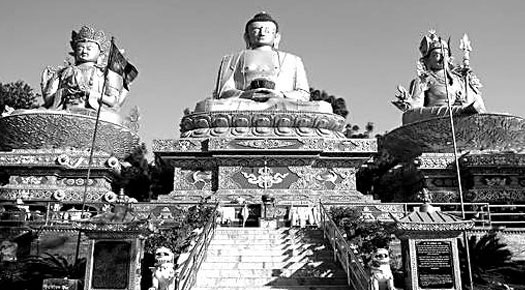
Religious minorities, including Muslims and Christians, in Nepal have criticized the draft version of their new constitution that prohibits religious conversion. Prompted by the recent earthquakes, Nepal’s government decided to introduce the draft constitution for public approval on June 30 but the country’s minorities have continued to express concern over its impact on their religious freedom and the government’s uncanny hurriedness to finalize the draft.
Christian Solidarity Worldwide (CSW) warned Nepalese people of the language used in the draft version of their new constitution, at least as far as religious conversion is concerned.
It said the draft “fails to allow for choosing and changing one’s faith to be seen as a positive individual choice or as a matter of individual rights, as required and guaranteed by international treaties.”
According to the draft constitution, any action that contradicts public health, public morality or decency or hinders public peace or causes conversion from one religion to another or undermines the religious beliefs of an individual or group is disallowed and shall be punishable by law.
Martin Dore, CSW’s advocacy officer in Nepal, explained that the draft constitution makes it illegal for Nepalese people to change their religion, evangelize or even explain the nitty-gritty details of different religions. He also warned that each of the conditions happen to violate Nepal’s international agreements.
“There is a purpose to stop all evangelism and talking about another faith in the words ‘incitement to breach public peace’ and the banning of ‘an act or behavior to undermine or jeopardize the religion of another,” Dore said.
The Rashtriya Prajatantra Party (RPP) in Nepal, which is based on Hindutva ideologies, has been lobbying for the inclusion of a ban on religious conversion ever since it demanded Hinduism to be recognized as the country’s official religion. To make matters worse, Hindu nationalists in India, who have in mind a similar agenda, have been offering support to RPP’s pro-Hindu interests.
Even though Christianity has been growing at a rather quick pace in Nepal, with some high-profile people switching from Hinduism, CSW has made many accusations in the recent past of having suffered forced conversions.
Open Doors spokesperson Emily Fuentes noted that in 2011, Nepal’s government had attempted to criminalize conversion to any other religion apart from Hinduism or Buddhism. However, since both Christians and Muslims are minorities in the former Hindu kingdom, they want Nepal’s new constitution to remain secular.
“We want secularism to be institutionalized in such a way that it is an unchangeable provision in the new constitution. We want the constitution to ensure religious rights and form a religious commission,” said C B Gahatraj, general secretary of the National Federation of Christians.
Alongside Catholics insisting that the word ‘secular’ be added to the new constitution and Christianity be officially recognized in Nepal, Muslims have been seeking permission to set up their own religious courts in the country as well. Even though Christians in Nepal are not necessarily subjected to any form of religious persecution at the moment, Dore pointed out that they do not enjoy legal rights to have their churches registered or acquire land for burial purposes. Under the transitional constitution, Nepalese people were disallowed from proselytizing even though they could still express their faith through charity and missionary work.
Photo Credits: Nest Hostels
